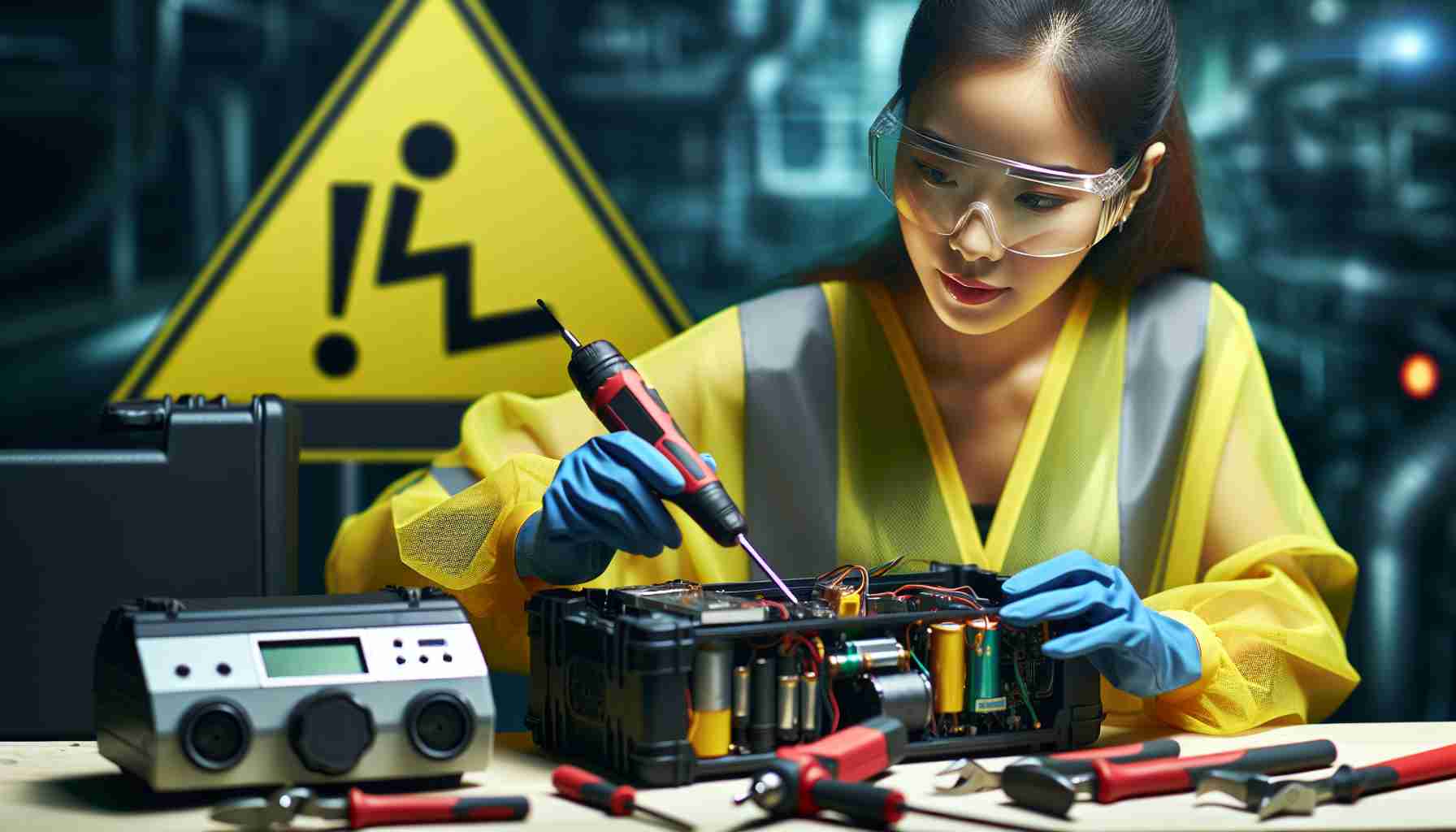Concerns have been raised about the safety of lithium-ion batteries found in various electronic devices. These batteries, if disposed of improperly, can pose a significant fire hazard, according to experts.
An expert in the field emphasized the importance of registering and recycling potentially hazardous batteries commonly found in electric bikes, scooters, drones, and other electronic gadgets. The expert called for stricter regulations that would compel importers to partake in a nationwide program designed to ensure the safe disposal and handling of these batteries.
Enhanced safety measures must be implemented to mitigate the risks associated with low-quality lithium-ion batteries. By adhering to responsible recycling practices and establishing industry standards, the potential dangers linked to these batteries can be effectively minimized.
The Importance of Proper Handling of Lithium-Ion Batteries in Battery-Operated Devices
In light of the growing use of battery-operated devices powered by lithium-ion batteries, there are several key questions that arise regarding the safety and environmental impact of these power sources. Here are some crucial considerations and information related to enhancing safety measures for battery-operated devices:
1. How do lithium-ion batteries pose a safety risk?
Lithium-ion batteries can be a fire hazard if not handled or disposed of properly. Due to their chemical composition, these batteries have the potential to overheat, catch fire, or explode if damaged, overcharged, or exposed to extreme conditions.
2. What are the key challenges associated with lithium-ion battery disposal and recycling?
One of the main challenges is ensuring that lithium-ion batteries are recycled correctly to prevent environmental contamination. Additionally, the lack of standardized recycling programs and regulations for these batteries can lead to improper disposal methods, further exacerbating the safety risks.
3. What are the advantages of enhanced safety measures for battery-operated devices?
Implementing enhanced safety measures, such as proper recycling practices and industry standards, can significantly reduce the likelihood of accidents and environmental harm associated with lithium-ion batteries. It also promotes sustainable practices and resource conservation.
4. What are the disadvantages of inadequate safety measures for battery-operated devices?
Failure to implement adequate safety measures can result in fires, explosions, and environmental pollution caused by improperly discarded lithium-ion batteries. This not only poses risks to human safety but also contributes to e-waste problems and potential long-term environmental damage.
In conclusion, it is essential for manufacturers, consumers, and regulatory bodies to prioritize the safe handling and disposal of lithium-ion batteries in battery-operated devices. By taking proactive steps to enhance safety measures and promote responsible recycling practices, the risks associated with these power sources can be effectively mitigated.
For more information on battery safety and recycling guidelines, visit EPA website.


















